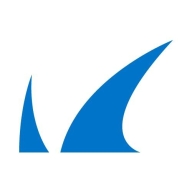


Barracuda Web Application Firewall and Prisma Cloud by Palo Alto Networks compete in the cloud security category. Barracuda often holds an edge for cost-effectiveness and customer support, while Prisma Cloud is favored for its comprehensive security features.
Features: Barracuda Web Application Firewall includes effective traffic management, threat prevention, and a built-in virus scanner, aimed at application security. Prisma Cloud offers a broad security suite with cloud security posture management, identity management, and compliance insights, providing comprehensive protection.
Room for Improvement:Barracuda could enhance its application security scope to compete with more holistic solutions. Additionally, improving advanced threat detection features and expanding multi-cloud integration may be beneficial. Prisma Cloud could simplify its deployment process, reduce complexity in configurations, and enhance user-friendly navigation to improve ease of use.
Ease of Deployment and Customer Service: Barracuda Web Application Firewall is easy to deploy with strong customer support, accommodating businesses that lack extensive technical expertise. Prisma Cloud, while supportive, involves a more complex deployment due to its comprehensive features and configuration requirements, demanding a higher level of technical involvement.
Pricing and ROI: Barracuda Web Application Firewall offers a lower initial setup cost, providing a significant ROI through effective security measures and support. Prisma Cloud's higher initial cost is offset by its extensive security capabilities, justifying long-term ROI for organizations needing thorough cloud protection.



| Company Size | Count |
|---|---|
| Small Business | 46 |
| Midsize Enterprise | 8 |
| Large Enterprise | 25 |
| Company Size | Count |
|---|---|
| Small Business | 25 |
| Midsize Enterprise | 6 |
| Large Enterprise | 11 |
| Company Size | Count |
|---|---|
| Small Business | 34 |
| Midsize Enterprise | 20 |
| Large Enterprise | 58 |
Cloudflare is a highly-regarded Content Delivery Network (CDN) and a Distributed Denial-of-Service (DDoS) protection solution. The robust global connectivity cloud platform that is Cloudflare ensures users are able to connect to the Internet quickly, securely, and reliably. Cloudflare is one of the world's largest networks in the marketplace today. Using Cloudflare, businesses, educational entities, NGOs, vloggers, bloggers, and anyone else with an internet presence can experience more secure, faster websites and applications.
Currently, there are millions of Internet locations on Cloudflare, and the Cloudflare network
continues to grow every day by the thousands. The solution is able to fulfill the requests for
millions of websites seamlessly and serves on average 45 million HTTP requests per second.
Cloudflare has safe, secure data centers in close to 300 cities worldwide to ensure every
client request is filled as quickly as possible. It is Cloudflare’s edge network that makes this
possible by keeping content and other services as close to each client as possible, so the
information requests are always only seconds away.
Many organizations that work in democracy, civil society, human rights, or the arts are able to
access Cloudflare's highest levels of protection for free via Project Galileo. Additionally, official
election websites can be secured from hacking and fraud through Cloudflare’s Project
Athenian, also at no additional cost.
Cloudflare can also help organizations of all sizes develop a robust zero-trust strategy to
ensure the highest levels of productivity and profitability. Employees, stakeholders, and end users have a greater level of satisfaction and overall improved user experience, which can, in
turn, result in higher revenues and overall ROI. Zero-trust and BYOD (bring your own device)
access ensure end users and employees always have the best resources and technology
available to them at all times.
Cloudflare benefits
Cloudflare has many benefits. Some of its most valuable benefits include:
- Faster load times
- Robust DNS security
- Intuitive cloud Web Application Firewall (WAF)
- Free universal SSL
- Image enhancement
- Automatic browser caching
- Next-generation cloud load balancer
- Accelerated Mobile Pages (AMP)
- Rate limiting
- Minification
- Zero-trust capabilities
- Cost-effective
- Reduced carbon footprint
Reviews from real users
“Many websites require an SSL certificate because they sell stuff and want SSL. Cloudflare
comes with an SSL certificate built in. It's automatic. You sign yourself up for Cloudflare, and
an SSL certificate automatically protects your website. If you have a connection between your
website and your host, the server, Cloudflare, and the host, you don't necessarily need a
certificate.” Spencer M., Owner at Tech Exchange
“What I like best about Cloudflare is that my company can use it to trace and manage
applications and monitor traffic. The solution tells you if there's a spike in traffic. Cloudflare
also sends you a link to check your equipment and deployment and track it through peering,
so it's a valuable tool.” Daniel P., Network Engineer at Ufinet
“The most valuable feature of Cloudflare is the GUI. You are able to control the solution very
well through the interface. There is a lot of functionality that is embedded in the service.” PeerSpot user, Competence Center Manager at a tech services company
Barracuda Web Application Firewall is a game-changing cloud-connected security solution that enables organizations to safeguard both their applications and their data from an ever-growing array of advanced cyber threats. It offers protection from cyber attacks that target not only data and applications stored on the cloud but also those that are housed on web servers. 43% of the time a breach takes place via a compromised application. Barracuda Web Application Firewall prevents these types of breaches from occurring.
Barracuda Web Application Firewall denies hackers the ability to penetrate your system by using a number of techniques to keep your organization safely insulated. The first method of protection consists of two parts. The first part involves a thorough scanning of all inbound web traffic. This solution monitors everything that comes into the system. It employs IP reputation intelligence, which filters all incoming data. If the source of the data has a bad reputation, it is blocked by the firewall. Administrators now have a way of locking out many common threats that could otherwise compromise sensitive networks. These scans can also allow administrators to protect their systems from within as DLP (Data Loss Prevention) protocols. If any sensitive data attempts to leave, administrators will automatically be alerted and the data will be blocked from exiting.
Barracuda Web Application Firewall can also be set up to apply the AAA (Authentication, Authorization & Accounting) framework to an organization’s network. If an intruder manages to get past the authentication stage, the authorization protocols kick in. After the authorization stage comes accounting, which works by tracking and logging users’ activities so that administrators will be in a position to prevent long-term damage from being done. This three-step process can be implemented without requiring administrators to make changes to their applications.
Key Features
Some of Barracuda Web Application Firewall’s key features include:
Reviews from Real Users
Barracuda Web Application Firewall stands out among its competitors for a number of reasons. One of the main ones is the robustness of the solution. Users are given access to a vast variety of security features in a single product.
PeerSpot user Muhammed S., a Presales Solutions Architect at Hilal Computers, notes this when he writes, "The solution offers multiple security features. There are machine learning features and great URL encryption. It also offers multi-protocol support against DDoS attacks."
Other reviewers note that Barracuda Web Application Firewall is user-friendly, easy to set up, stable, and reliable.
Prisma Cloud by Palo Alto Networks provides comprehensive cloud-native security solutions. It covers dynamic workload identity, automated forensics, and multi-cloud protection, ensuring robust security across diverse cloud platforms.
Prisma Cloud delivers advanced capabilities for managing cloud security across AWS, Azure, and GCP platforms. It offers dynamic workload identity creation, real-time monitoring, and seamless integration into CI/CD pipelines. With automation, centralized dashboards, and enhanced visibility, users effectively manage security misconfigurations and vulnerabilities. While optimizing cloud environments through runtime protection and compliance, Prisma Cloud faces challenges with its navigation, pricing, and limited automation capabilities. Users seek improvements in API security, role-based access controls, and documentation quality, emphasizing the need for enhanced customization and reporting features.
What are the important features of Prisma Cloud?
What benefits or ROI should users consider in reviews?
Industries like finance and telecom rely on Prisma Cloud for managing cloud security posture and container security. Teams utilize its capabilities across hybrid and multi-cloud settings to ensure compliance and robust threat protection. Features like misconfiguration detection and runtime monitoring are critical in promoting security objectives in these sectors.
We monitor all Web Application Firewall (WAF) reviews to prevent fraudulent reviews and keep review quality high. We do not post reviews by company employees or direct competitors. We validate each review for authenticity via cross-reference with LinkedIn, and personal follow-up with the reviewer when necessary.